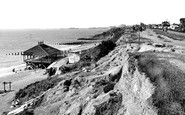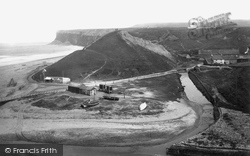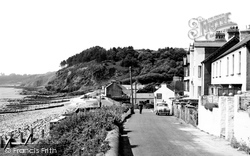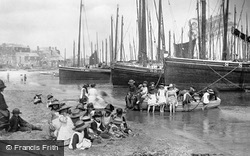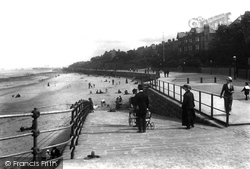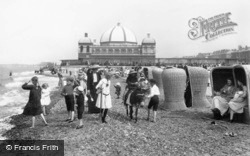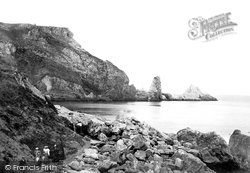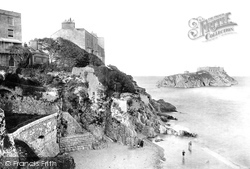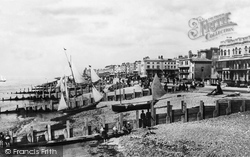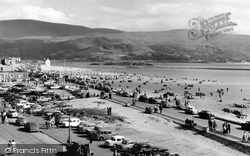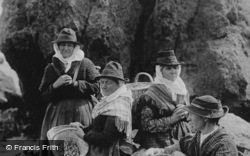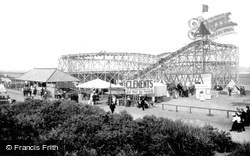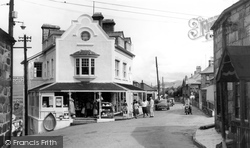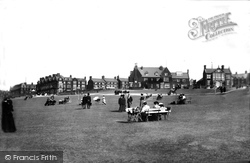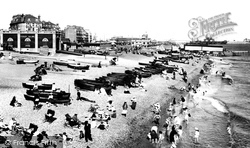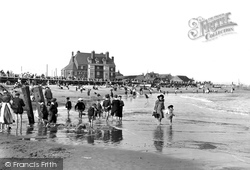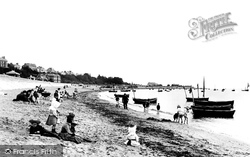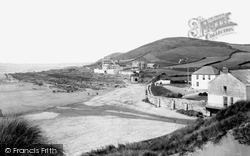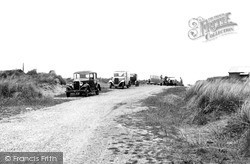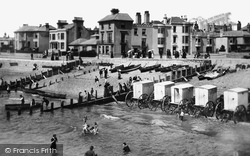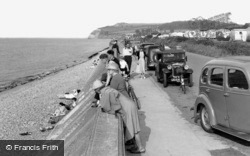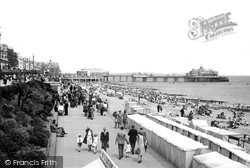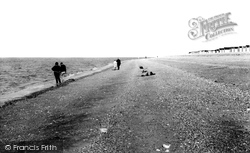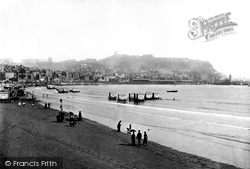Places
1 places found.
Those places high-lighted have photos. All locations may have maps, books and memories.
Photos
11 photos found. Showing results 681 to 11.
Maps
4 maps found.
Books
1 books found. Showing results 817 to 1.
Memories
1,362 memories found. Showing results 341 to 350.
Summer At Dark Lane
I remember that we had some wonderful days at Dark Lane on the beach when we should have been at school! And how wonderfully clear the water was, and diving off the pipe there!
A memory of Aldwick in 1969 by
Summer 1967
You werent dreaming Patricia! - they were there and they are still there from Easter to the end of September. They are on the beach walking from Cawsand to Kingsand and then on for half a mile or so towards Plymouth. They are as loved now as they ever were. Best Wishes Gillian
A memory of Cawsand in 1967 by
Summer 1967
When I was three or four years old I visited Cawsand for a family holiday. I remember it very clearly because, for various reasons, it was the only holiday we all went on together. I am hoping someone might be able to solve an on-going ...Read more
A memory of Cawsand in 1967 by
Such Great Holidays!
I remember as a child the great holidays in the 60s on the beaches at Holland. We hired a beach hut for 7/6 a week near the deck chair and paddle float hire. Who can forget the pretty girls who pushed the ice cream ...Read more
A memory of Holland-on-Sea in 1960 by
Suburban Elstree
I lived in Lodge Avenue from 1957 to 1976. It runs off Allum Lane, which was a major road that connected Watling Street to the Railway Station, which opened in 1868. Lord Aldenham, Governor of the Bank of England, lived in ...Read more
A memory of Elstree by
Stoney Beach & The Lifeboat Station
Parents in the (old) Kinmel Arms, boozing over an extended lunch time - my brother and me exiled to the adjoining Stoney Beach where we passed the hours away crushing the softer red ...Read more
A memory of Moelfre in 1957 by
Stone House
I lived in the war damaged Stone House, Cullercoats which was situated within 10 ft stone walled enclosed gardens, adjacent to Stone House Cottage, fishermens cottages and a big hotel facing the road down to the beach. from birth ...Read more
A memory of Cullercoats by
Stockton Road
I was born in Flixton before moving with my parents to Stockton Road Chorlton-Cum-Hardy. At the time my dad was working at Metrovicks in Trafford Park before getting a job working for the MOD at The Royal Ordinance Factory ...Read more
A memory of Chorlton-cum-Hardy in 1941
Stew
I was amazed to see this website!I was at Arley for the whole of the Second World War. The memories that I have are happy ones and I was looking for the prospectus that I was sure I had when I thought of going online. The names leapt out ...Read more
A memory of Upper Arley in 1940 by
Stephen Holmes
I remember my friends and I found ,on blackhall beach some explosives, one of our group (no names no pack drill) made use of them to blow up one of the most popular caves at the rocks, I can still hear the shouts as the ...Read more
A memory of Blackhall Colliery in 1955 by
Captions
1,130 captions found. Showing results 817 to 840.
Another delightful view of the Cat Nab area of Saltburn, with the distinctive profile of Huntcliffe beyond.
Amroth is a former coal mining village at the southerly end of the 186 mile-long Pembrokeshire Coast Path.
The Frith archive contains a number of these posed group pictures; the majority seem to have been taken during the 1890s.
A family walk down Magazine Lane Slipway onto the beach. This is close to the site of the magazines: ships entering the Mersey had to deposit any gunpowder there during their stay in port.
This bustling scene looks east to the pier pavilion and the pier. The bucket and spades, bare feet, donkeys and wickerwork basket chairs recapture a vanished era.
Anstey's Cove, with Redgate Beach hidden on the left, was a favourite bathing spot for Agatha Christie, who was born in Torquay in 1890.
Traditionally in the ownership of wealthy occupants, the private steps leading down to the beach still belong to these houses, except those on the extreme left.
The largest seaside town in West Sussex, Worthing began to grow as a fashionable resort towards the end of the 18th century.
A hugely expansive beach here means that it never fills up with holidaymakers in this popular resort and former fishing and trading port.
Posed on Goscar Rock on Tenby's North Beach, these women were paid for their work as models.
Skegness's most famous fairground ride was the Figure Eight, which was regarded as a worthy rival to Coney Island!
The sands, which are extensive enough to give the full benefit of ozone to those who avail themselves of its health-giving properties, form an excellent bathing-ground, entirely free from danger.
By the 1960s, more and more holiday visitors were arriving by car as well as by rail.
Hunstanton is unique for north Norfolk resort towns in that it looks west across the sea and not east.
Oh, we do like to be beside the seaside! These sunseekers are thoroughly enjoying a paddle in the Channel.
This is a fine view of the 'lost beach' of Gorleston, so named because after years of erosion it has been reduced to a fraction of the size we see here.
At the beginning of the last millennium, marauding Danes landed on these sandy Devon beaches and put the village of Exmouth to fire and sword.
Once a sleepy Devon backwater, Croyde's beach and bay was discovered by holidaymakers in the 19th century. With two huge caravan parks, this area fills up dramatically in the short summer season.
The unmade road leads from the village to the beach. The sand-dunes are covered with marram grass, which helps knit them together and prevent erosion on this windy coast.
From the beginning of the 19th century most resorts had bathing machines in which bathers could change while being dragged into the sea, initially by horses and later by winches.
Blue Anchor is a hamlet in Carhampton parish, and it takes its name from the local inn. In 1874 it became a halt on the Taunton to Minehead railway line, now the privately run West Somerset Railway.
The old 'birdcage' bandstand was replaced in 1934-35 by an altogether grander affair with a seating capacity of three thousand people.
Heacham has the distinctive flat beach of this part of the West Norfolk coast.
The bathing machines are doing good business. In the 1720s, it was the custom for those 'taking the waters' to bathe in the sea.
Places (1)
Photos (11)
Memories (1362)
Books (1)
Maps (4)

